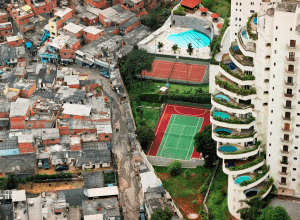SDG 11 – Sustainable Cities and Communities
Earth year 4,492,056,017
Mother Earth/ Gaia‘s Blog
Mankind, My children
In my first blog post I asked that you commit to following my blog for a few weeks to give me a chance to explain the most important issues affecting our joint survival. Subsequent Blog posts have started to give you some facts about the big and important Global issues that need to be addressed. In today’s Blog post I want to talk about the need to Sustainable Cities and Communities.
The Problem

Half of humanity – over 3.5 billion people now live in cities and by 2030 this will rise to be 60% of global population. Over 95% of such urban expansion will occur in the developing world where over 828 million people already live in slums and rubbish tips around cities. Such rapid urbanisation will exert even more pressure on freshwater supplies, sewage, environment and public health unless effective action is taken on a number of aspects to create safer, more sustainable ways of living in such communities.
Do you feel guilty when you see the suffering of the poor in developing countries and the terrible conditions in which many of them have to live and bring up their families? Do you get frustrated that little seems to be done to help such people? Do you get angry at the unfairness of the world where so many struggle to survive and feed their families? Now is your chance to do something to change the world!
The facts
1. 828 million poor people have to live in urban slums with very limited services
2. 95% of the expected future urban growth will occur in cities of the developing world
3. 90% of the 1.24 million global road accident deaths happen in low and middle income countries and up to 75%of the deaths in urban areas are to the poorest–pedestrians and cyclists!
WCYDo (wich-ee-do What Can You Do?)
1. Buy fair trade products to help poor workers have a living wage to feed their families
2. Fund raise or donate to charities that assist people in the developing world, such as www.eesi.org, www.habitat.org
3. Write to your politicians to increase aid and trade with developing world
4. Share the facts about global urbanisation with family and friends.
5. Write or emails to newspapers to request more coverage of this topic
6. Encouraging others to join campaigns or donate to charities
Encourage others to join us and to visit our Facebook feed at https://www.facebook.com/WCYDO.Earth/ to sign up for our free newsletter and information about our proposed WCYDo App. See you next week on blog post 12.

